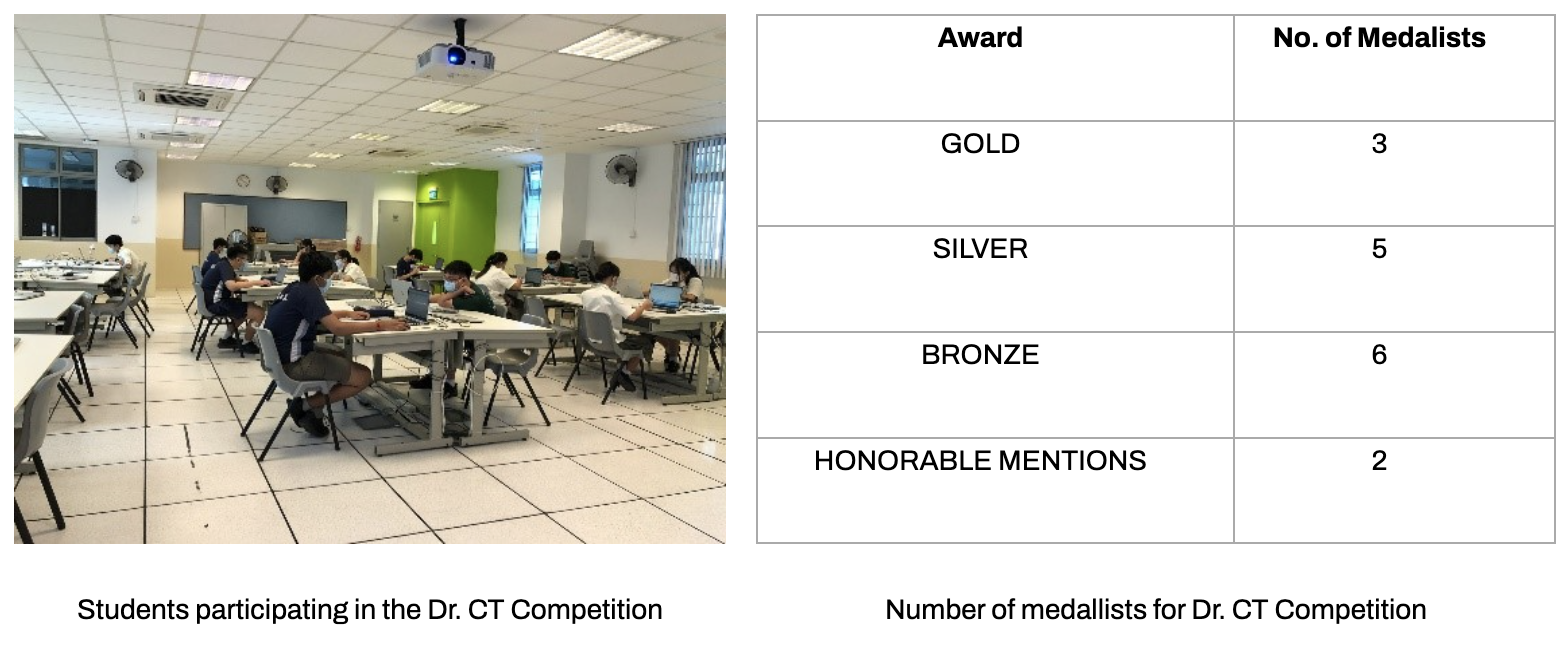Applied Learning Programme
Introduction
Admiralty Secondary School was highly successful in 2006, then a 4-year-old school, to be awarded Robotics Enterprise Niche.
From 2015, the school has embarked on the Applied Learning Programme (ALP) to ensure that all our students acquire a broad and deep foundation for a lifelong journey of learning.
Through curriculum re-design, the school has adopted a novel approach to ALP by integrating Design Thinking (DT) and Science, Technology, Engineering and Mathematics (STEM). The approach is also enriched with regular interactions with practising engineers from industries and Institutes of Higher Learning (IHLs).
This novelty allows students to experience a seamless learning experience through integrating STEM, DT and real-life applications together. This unique ALP is known as Design Thinking through Innovation and Technology.
Programmes and Outcomes
Tier 1 Curriculum (Secondary 1)
The Tier 1 curriculum seeks to equip all Admirals with a foundation in STEM and DT through the fortnightly ALP lessons. The Secondary 1 ALP teachers, with support from partners, introduced new technology such as the Qdee robot and the Microsoft Makecode website to engage our students in meaningful hands-on activities during ALP lessons.
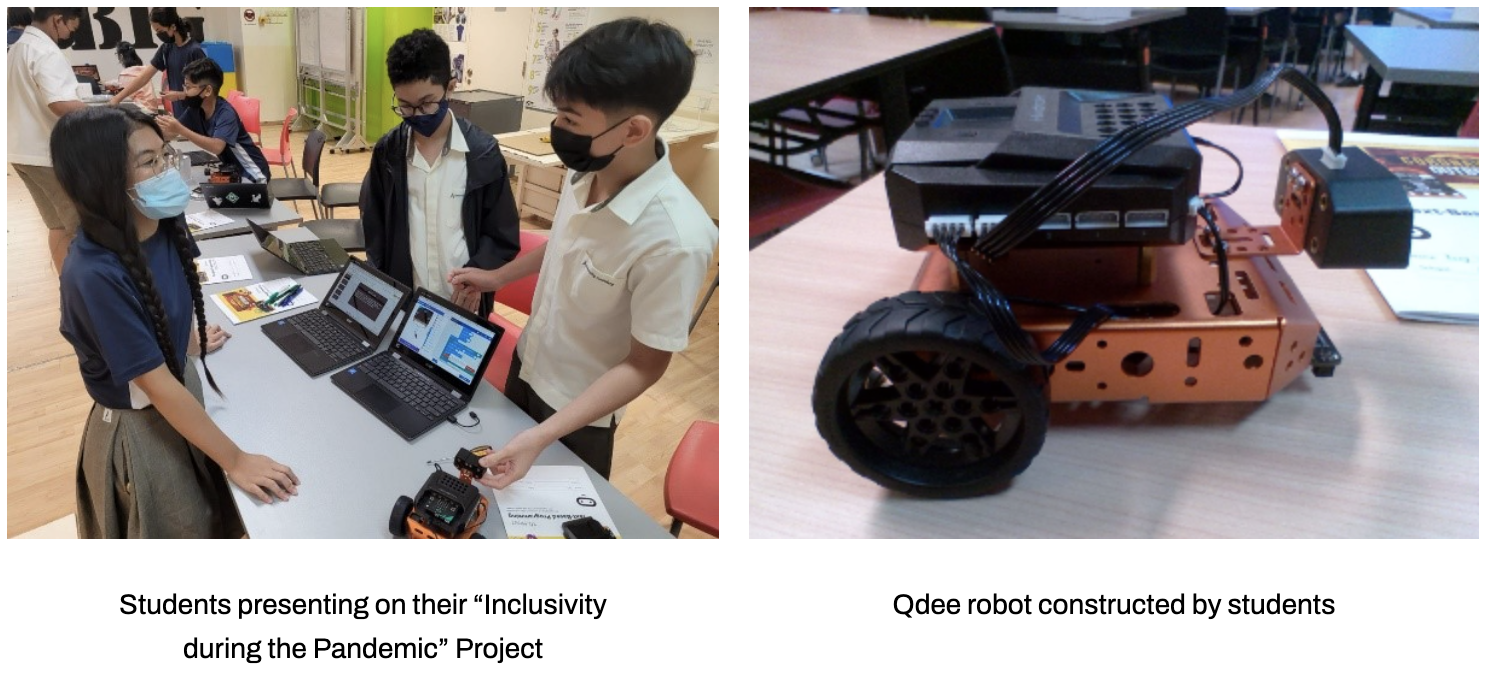
While we strive to equip students with coding skills and problem-solving skills through the five DT processes, we have also collaborated with external partners to demonstrate to students how they can apply what they have learnt to a real-life context. Attending talks by our partners have also allowed Admirals to discover potential job opportunities, should they decide to pursue a career in STEM in future.
Tier 1 Curriculum (Secondary 2)
In Secondary 2, students would use AI to solve real-world problems. Centered on the theme of “Inclusivity”, students would work in groups to ideate solutions for issues in the community. They would apply their knowledge of DT and coding from the Secondary 1 curriculum, and extend their knowledge on micro:bit to Huskylens. There would also be opportunities for students to showcase their works to fellow Admirals and the community.
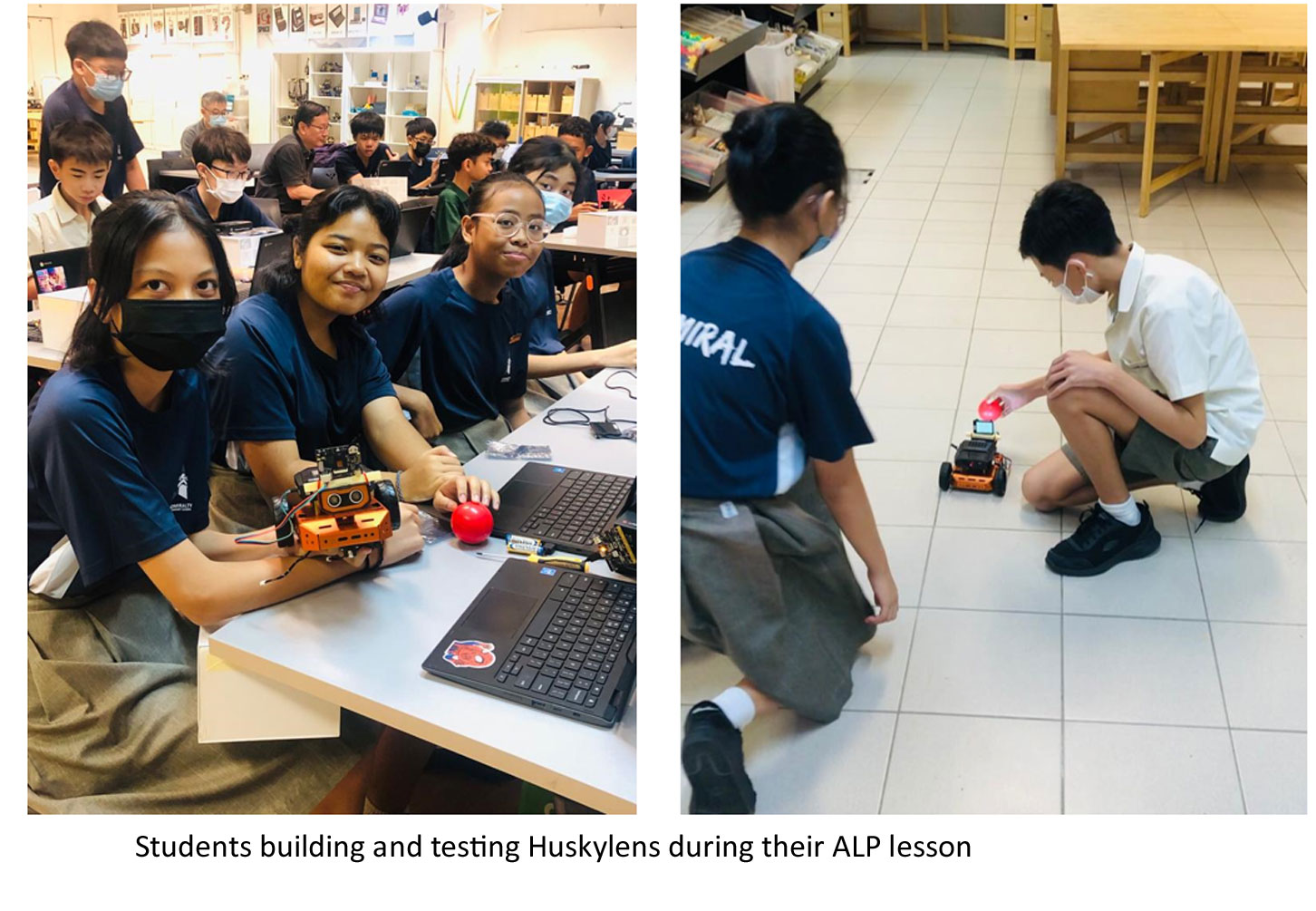
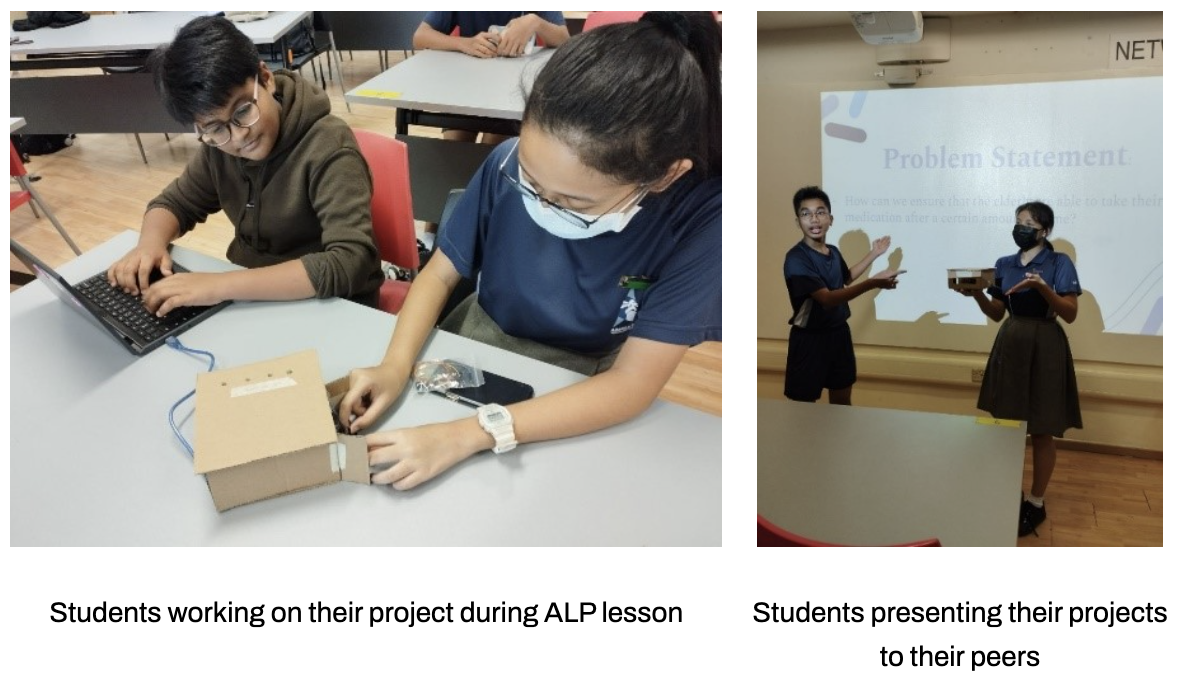
ALP Learning Festival
To provide students with more opportunities to showcase their work and learn from one another, the school took part in the ALP Learning Festival, where students from various schools participated in different workshops and learnt from each other during the main day event. Sharing of various ALP projects done by students from different schools encouraged the sharing of innovative ideas and promotes the learning of STEM.
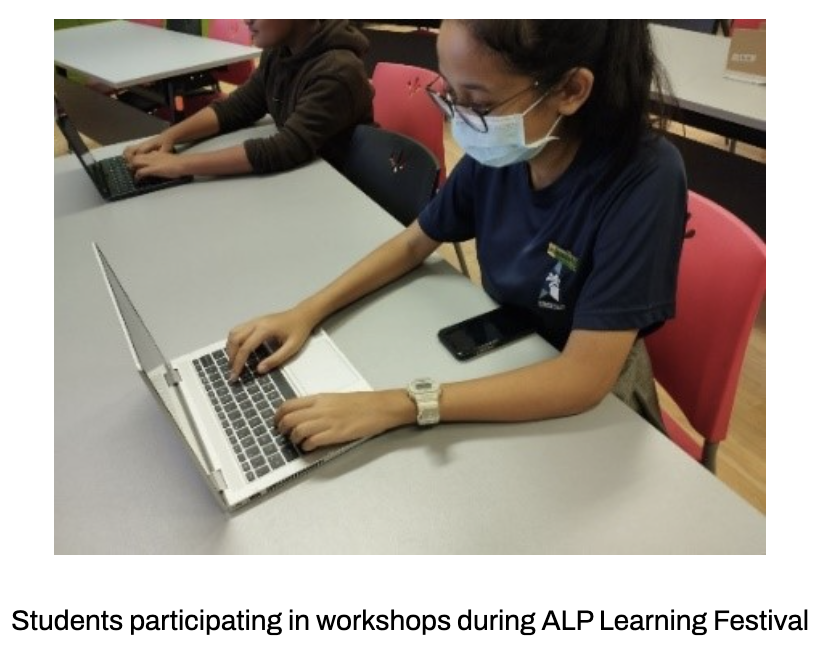
Tier 2 Programme – Applied Lifelong Learning Program (ALLP)
The Tier 2 curriculum caters to all interested and abled Admirals to provide them with opportunities to apply their learning in ALP meaningfully. To do so, the school ride on the Innovation Programme (IvP) to develop and challenge our students meaningfully. The IvP is an enrichment programme jointly organized by the Gifted Education Branch (GEB) and Ministry of Education (MOE) in close partnership with institutes of higher learning. This programme aims to develop students’ creative problem-solving and thinking skills where they think critically about existing problems, generate ideas to improve current situations and develop prototypes to test and improve their ideas.
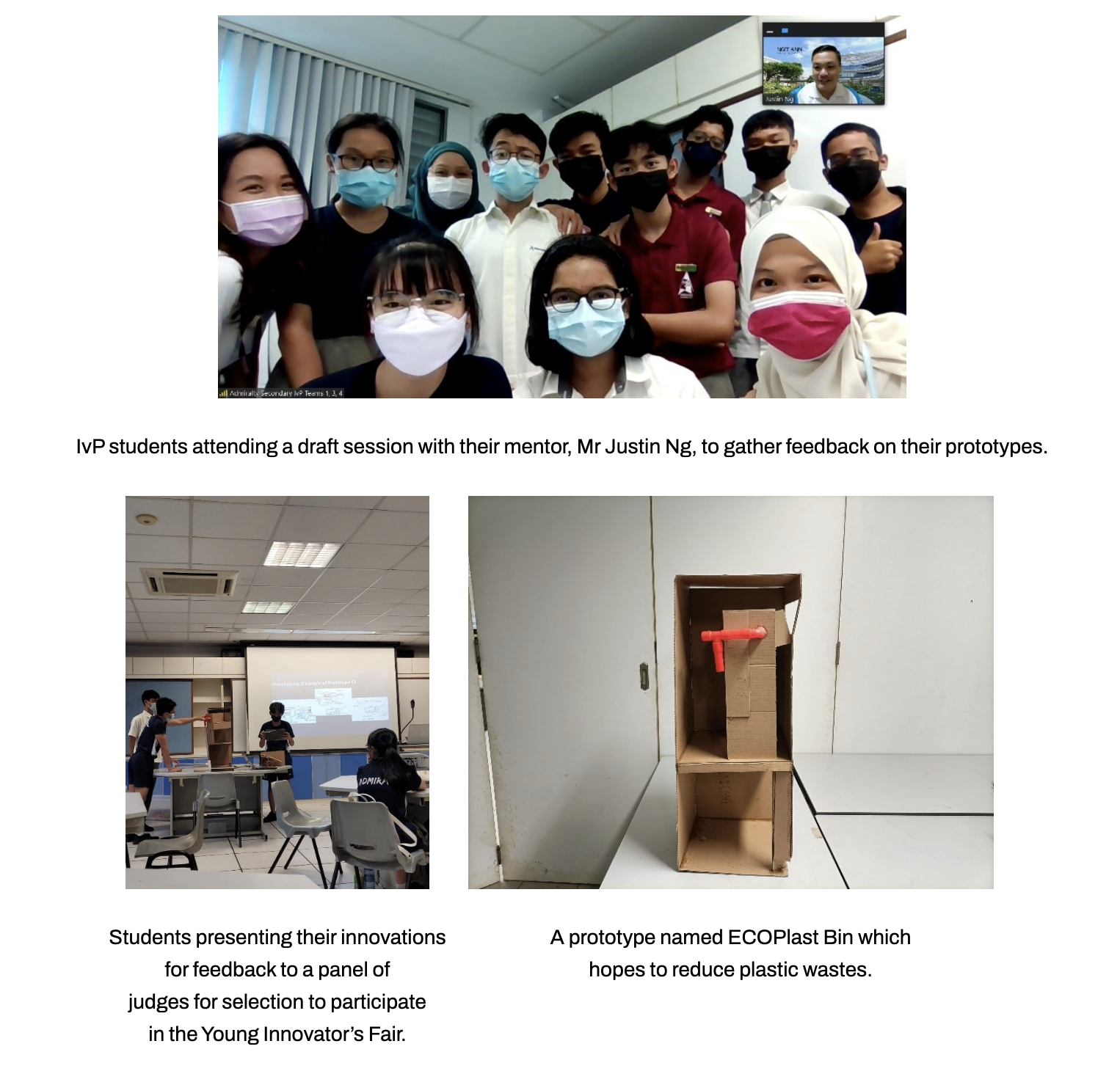
Tier-2 Programme – Tinkering Thursday (TT)
Every year, several interest-based workshops would also be organised, to help engage students who are interested to be more active in making with technology and allow them to participate in maker-related network community to understand the current trend in the field.
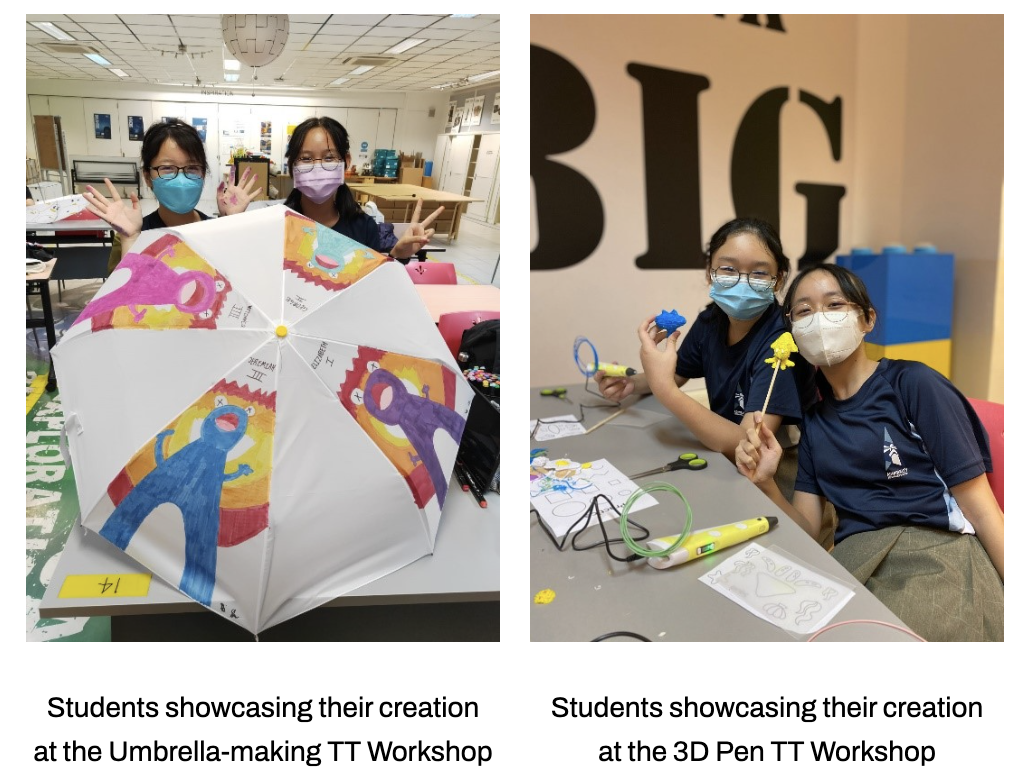
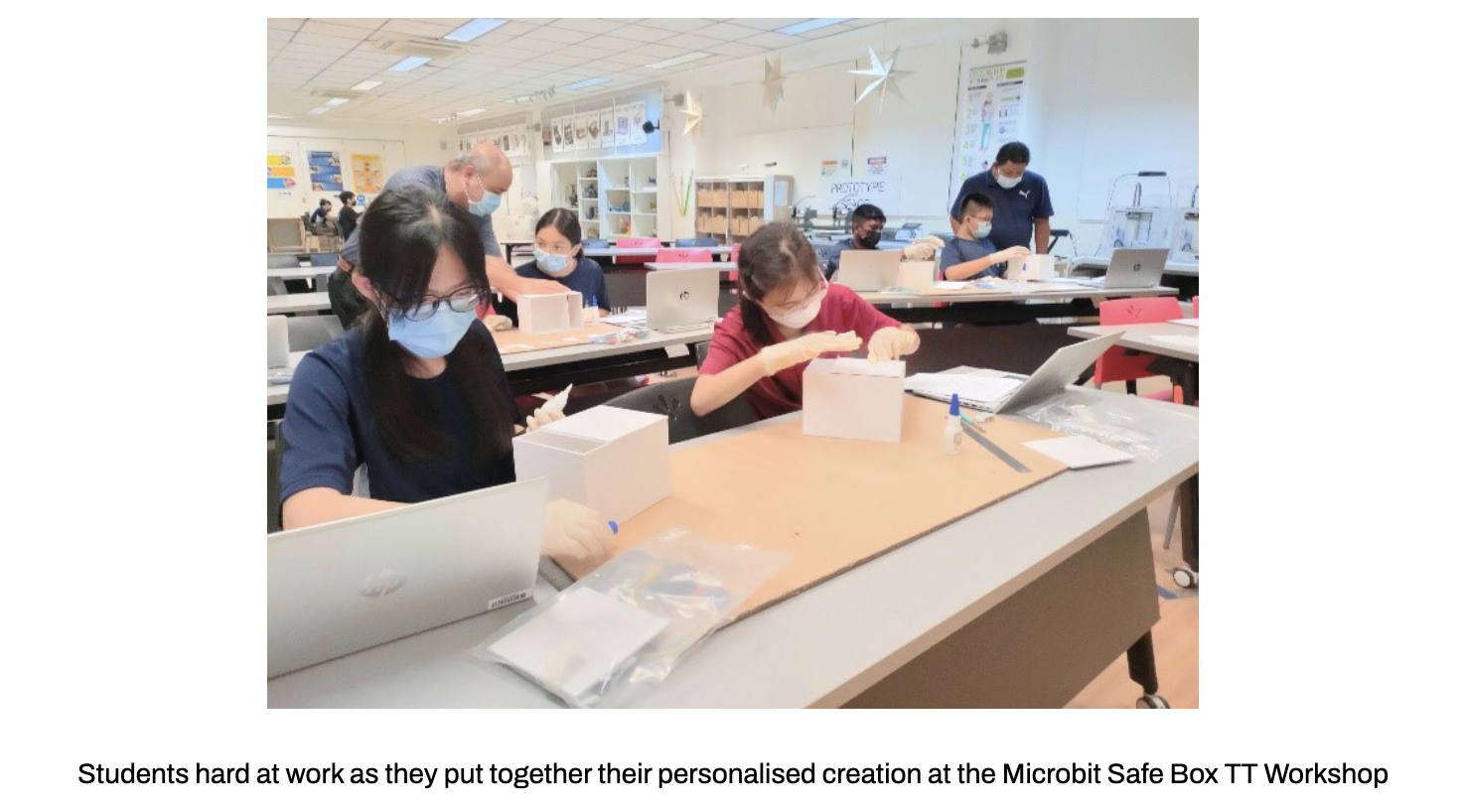
Tier-2 Programme – Competitions
Besides the enrichment provisions, the school also sends our ALP students to participate in STEM related competitions, such as the Design Thinking with Robotics and Computational Thinking (Dr. CT) International Competition, Bebras International Challenge on Informatics and Computational Thinking, as well as the Intel AI Global Impact Festival. Our school has performed consistently well in such competitions and some of our students were extend invitations to join higher tier competitions such as the National Software Competition.
